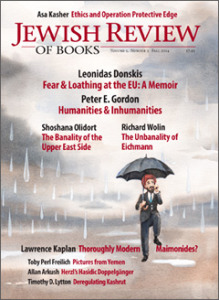From My Bookshelf: On Bittersweet Place, by Ronna Wineberg
 Last Thursday evening I had the great pleasure of celebrating the publication of On Bittersweet Place, a novel by Ronna Wineberg, at a lovely book party on the West Side of Manhattan.
Last Thursday evening I had the great pleasure of celebrating the publication of On Bittersweet Place, a novel by Ronna Wineberg, at a lovely book party on the West Side of Manhattan.
I’ve known Ronna for years. I interviewed her when her short-story collection was published. She helped shepherd one of my short stories along the route to publication in Bellevue Literary Review. And one of her cousins is a dear friend of one of my cousins—which makes Ronna and me practically family!
So I was honored to be asked to contribute a “blurb” for On Bittersweet Place, which relocates the typical Jewish-American immigration story from New York to Chicago. After reading the galley last spring, here’s what I wrote: “In the pages of Ronna Wineberg’s On Bittersweet Place, one finds echoes of Anzia Yezierska and Betty Smith; in the fictional story of Lena Czernitski’s immigrant family in the first quarter of the 20th century the reader recovers a piece of our larger American history. Quite impressive.”
You’ll surely be hearing more about this lovely novel soon. For starters, you might want to read this new Q&A with Ronna on the wonderful Bloom website. Read through to the end, and you’ll see a link to a book excerpt, too.


